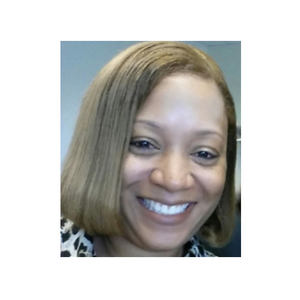
By: Tiffany Thompson, MSW, CSW
tthompson101974@gmail.com
Like many other helping professionals, my first day back to work in the new year was spent reflecting on my strengths and areas for growth from the previous year. For me, this contemplation usually takes place in December, as I reach another milestone-my birthday. For others, self-examination takes place on New Year’s Day as resolutions are made and smart goals are put into action.
Just Practice: A Social Justice Approack to Social Work, 2nd Ed.(2e) Janet Finn and Maxine Jacobson (2008), define self-reflectiveness as the task of critically thinking about the way we process information, behave, our competence level, and the desire for improvement. Regardless of the technique or time of year, self-examination and reflection are vital to social work practice.
On September 1, 2016, Paolo Gallo chose to do some musing in his article “10 Questions to Find Real Meaning at Work”. As a social worker, I decided to evaluate my own career path by utilizing Gallo’s ten questions. After adapting his questions to my own professional experiences, I discovered the following conclusions:
1. What is your desired outcome?
As a social worker, sometimes we do not always achieve the desired outcome for our clients or ourselves. The CSWE (2001, rev.2004, p.2), states that “Social work practice promotes human well-being by strengthening opportunities, resources, and capacities of people in their environments by creating policies and services to correct conditions that limit human rights and the quality of life.” (as cited in Finn & Jacobson, 2008, p.20). Considering this statement, I want to be the best at meeting the needs of the faculty, staff, and students I encounter. Sometimes being overworked, burn-out, a lack of supervisory support, or a frenzied work environment can get you off course. Applying self-care to ease frustrations, having a critical friend to discuss problems with, addressing concerns during supervision and/or group meetings, and counseling can help us achieve our best professional self. I have used these methods since graduate school and they have produced favorable results for me.
2. What do you bring to the table?
As social workers, we are reminded to focus on our clients’ strengths. As professionals, we also have strengths. Taking a moment to evaluate our assets and areas for evolution promotes confidence and self-awareness. Consulting with colleagues who have more expertise in specific areas also improves our overall practice. I have learned so much from people in other disciplines and their wisdom has informed my approach to serving others. Finn & Jacobson (2008), assert that using a strengths viewpoint stimulates open conversations, restoration, and connections with colleagues and clients.
3. Are you able to cultivate relationships without being defensive?
Gallo (2016), proposes that taking a proactive approach by allowing yourself to be authentic instead of defensive and creating relationships aids in avoiding a hostile work environment. One way to achieve this, is by using talking circles. I attended a Restorative Talking Circle with faculty and staff last December 14, 2016. The facilitator explained the purpose of talking circles, rules of conduct, and the results she hoped to achieve. According to First Nations Pedagogy Online (2009), talking circles inspire a teaching/learning milieu, a rich exchange of ideas, admiration, and a sense of kinship. After listening to each person share their responses to the topics, I had a greater appreciation for their individual contributions. This technique is very worthwhile for group discussions and employee orientations.
4. What does accomplishment look like for you?
We all frame success differently. Gallo (2016), explains that disappointment is an essential ingredient in achievement. When we celebrate small wins, and focus on what needs to be changed or scrapped altogether, we all succeed. Having published 10 articles and a book chapter since 2015, I was 2 short of my original goal of 12. However, I am thankful for the opportunity to share my work with others in the field. Not being as far along in my career as some of my cohort members has proved frustrating at times. But, I am thankful to be employed in a diverse academic community with multiple opportunities for professional development. Each day I try to think about what goals I have met and leave the rest for another day.
5. How can you comprehend your agency’s cultural climate?
After analyzing the 2012 Spalding University Cultural Climate Survey, I have a greater sense of what a cultural climate is and how it impacts the environment. Finn and Jacobson (2008), note that culture is viewed as a structure of communal processes and standards that shape our positionality in the agency and our ability to serve clients. Whether we are in a federally funded, state funded, non-profit, or for-profit setting, an understanding of our agency’s culture will assist us in providing the highest quality services to our clients. While in my current position, I have attended meetings throughout the year where our organizational structure, mission statement, and goals for the academic period are clearly defined. Having this information accessible allows me to know the chain of command, how we are subsidized, and what our best practices are for serving the campus. When changes or updates occur, we are typically informed via email so that everyone is on the same page. I reference this information periodically to prepare for the tasks ahead.
6. How can you forge confidence in relationships?
At times, we have all encountered individuals with trust issues-including ourselves. Lorraine Gutierrez and Edith Lewis (1999), advise that skepticism has increased due to poor consideration for the intersectionality of factors that influence the formation of the client-clinician relationships (as cited in Finn & Jacobson, 2008, p.245). As social workers, we know that discrimination against any individual based on race, gender, sexual orientation, religion, age, ability, or education level cannot be tolerated. Being mindful of personal bias, employing active listening skills, and using empathy when working with colleagues as well as clients can nurture healthy relationships. As someone who has overcome many difficult situations, I always strive to treat people how I would want to be treated.
7. How do you make tough decisions?
Remember the SWOT analysis tool from undergraduate or graduate school? The Social Work Pocket Guide to Stress and Burnout Siobhan Maclean (2012), gives us the following components of a SWOT analysis: (S) represents strengths, (W) is weaknesses, (O) is opportunities , and (T) is threats. When faced with a difficult choice in social work practice, a SWOT analysis can help us figure out the best selection. By looking at a decision from each of these categories, the most suitable option should be more evident. This tactic has been useful in my professional as well as my personal life.
8. Can you see the world from other points of view?
In the social work field, many of us are familiar with the word paradigm. Lincoln, Guba, Maguire, and Patton express paradigms as “worldviews, ways of thinking, or systems of belief that denote certain methods of practice” (as cited in Finn & Jacobson, 2008, p.181). The lenses through which we view our world are shaped by our life experiences. Knowing what it’s like to grow up in a nuclear and single-parent home, endure abuse and neglect as a child, survive poverty, homelessness, unemployment, car accidents, and house fires increases my compassion toward others. Pondering times in your life when you or someone you know has overcome trauma or loss, can significantly boost your identification with others in the field.
9. Are you a lifelong learner?
Maclean (2012), shares that social workers often delay professional development due to high caseloads. Maclean further suggests that regular professional enhancement can be a successful anxiety relief method by promoting: critical examination, renewed zeal, broadened expertise, and increased awareness of the ebb and flow of the process (Maclean, 2012). Working in higher education, I am fortunate to have numerous professional opportunities throughout the year. Many of these events are free and campus-based which is an added advantage for me. When I attend trainings, I have the chance to meet other professionals and learn about local, state, and federal initiatives that could benefit my clients. Although I am an introvert and do not like crowds, I look forward to garnering new information that I can share with others.
10. Do you have passion for your career?
We have all experienced fluctuations in our desire to begin or continue as helping professionals. As we head to work each day, we have a unique set of challenges that await us. For some, it may be inadequate funding for needed programs, higher salaries, or supplies. For others, it might be a toxic or disorganized work environment or an infinite caseload. Despite the consequences, you cannot allow anyone to steal your passion for social work. In my case, the totality of my life and job experiences have fueled my drive to help people. Welcoming visitors from foreign countries, meeting with students from all walks of life, giving a blanket to a homeless man on our campus, or listening to a colleague’s story about his Grandmother’s poverty during the Great Depression enriches my professional experience. If you have lost your joy in social work, perhaps self-reflection will lead you on an alternate path. Whatever your decision, you should do what you love and love what you do.
I anticipate positive outcomes for our profession and our clients this year. Hopefully, these queries will renew your energy, help manage stress, increase critical thinking, and sharpen your focus in the coming days. Reflecting on our social work practice will support professional development, service, and overall well-being.
About the Author: Tiffany Thompson earned an MSW from Spalding University, Louisville, Kentucky. She is a published author who is passionate about foster care, women’s rights, education, and social justice.

